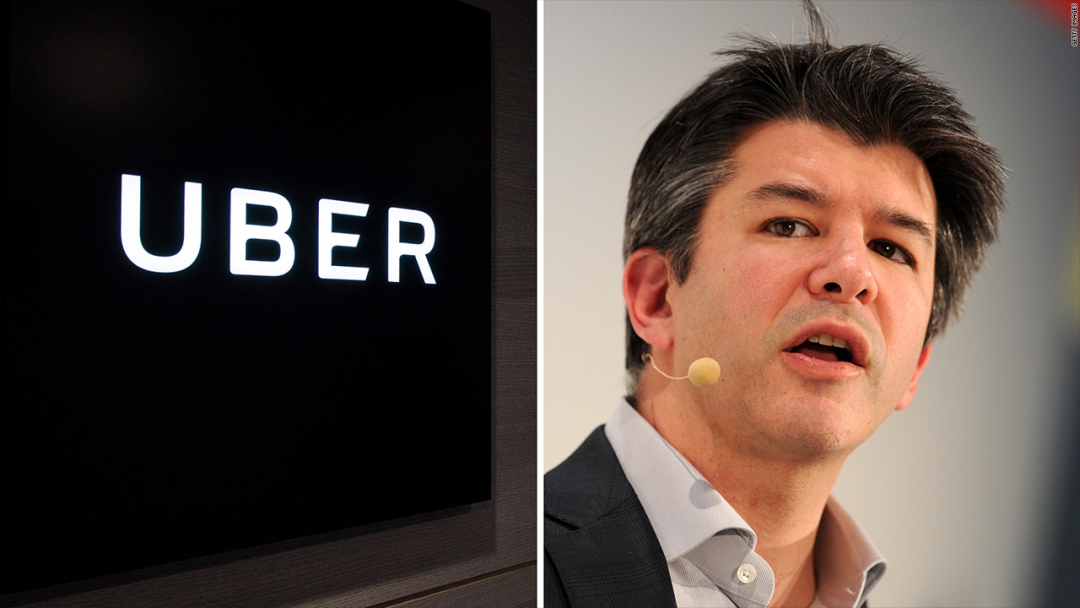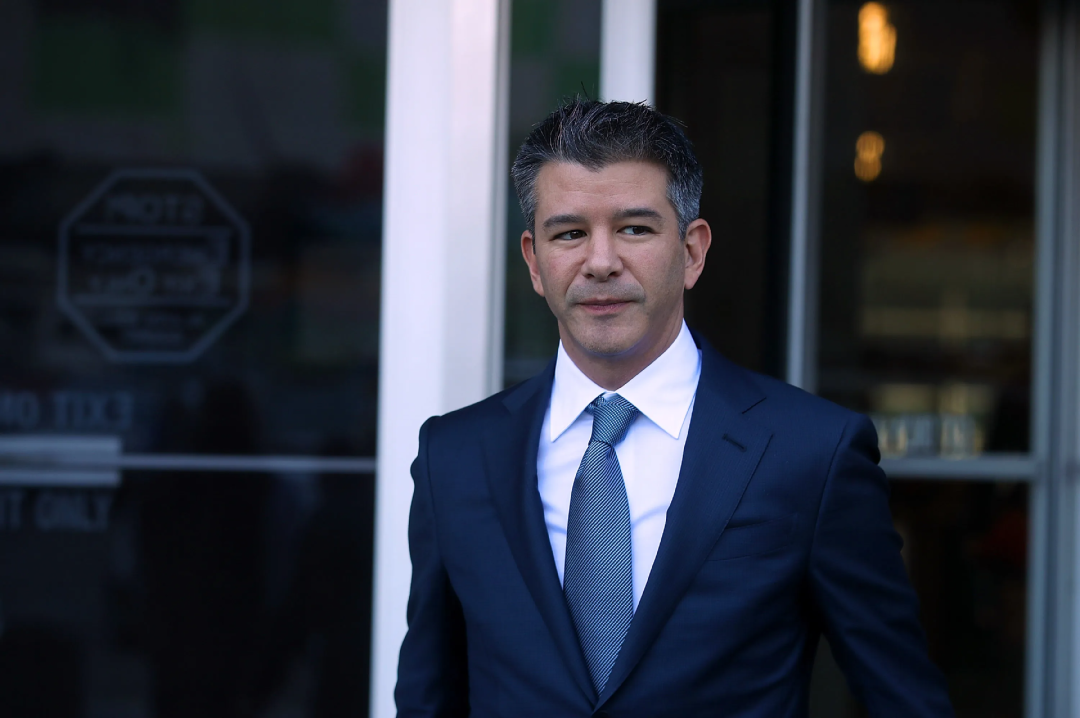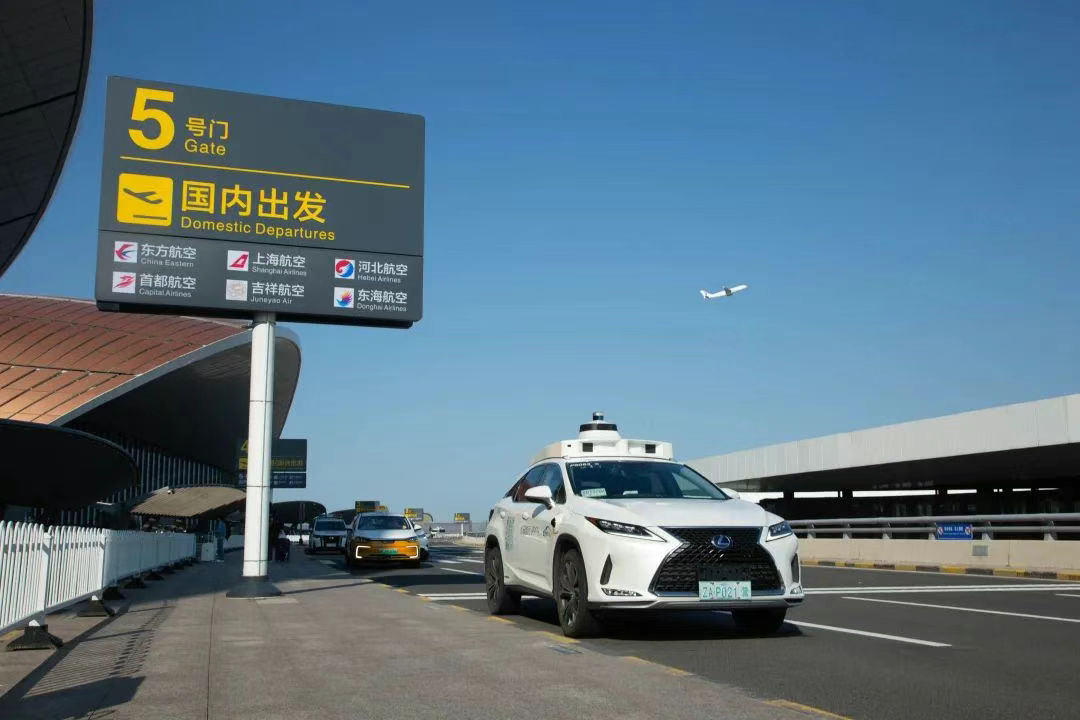Uber Returns to Robotaxi Scene, as Founder Travis Kalanick Eyes Acquisition of Pony.ai's U.S. Subsidiary
![]() 06/30 2025
06/30 2025
![]() 703
703

Deal valued at less than $500 million
Author | Wang Lei
Editor | Qin Zhangyong
A seasoned transportation industry player has set its sights on a prominent Chinese autonomous vehicle company.
According to The New York Times, Uber is in preliminary discussions with its co-founder Travis Kalanick regarding funding for the acquisition of Pony.ai's U.S. subsidiary.

Currently, Kalanick is collaborating with several investment firms to raise funds for the acquisition, with Uber also playing a facilitating role in the deal.
Sources indicate that negotiations are still in their nascent stages, and financial details of the potential transaction remain undisclosed. Bloomberg analysts suggest that given Pony.ai's U.S. operations have yet to generate revenue, any deal with Kalanick is "likely to be valued at less than $500 million".
SuperEV Lab reached out to Pony.ai insiders regarding the matter, who declined to comment.
01
Unwavering Ambition in Autonomous Driving
It is significant to note that Travis Kalanick is the individual aiming to acquire Pony.ai's U.S. subsidiary. Upon completion of the acquisition, Kalanick will assume leadership of Pony.ai's U.S. operations.
Although Kalanick is a co-founder of Uber, his current involvement with the company is minimal. He resigned as CEO in 2017 and fully stepped down from the board in late 2019, now holding only Uber shares.
Uber's assistance to Kalanick in acquiring Pony.ai's U.S. subsidiary is intriguing, given their strained past. Kalanick was even compelled to leave Uber, and now the two are coming together over Pony.ai, potentially paving the way for further collaboration.
Kalanick's entrepreneurial journey can be described as marked by both misfortune and success. Like Bill Gates and Steve Jobs, Kalanick dropped out of the prestigious University of California, Los Angeles at age 21 to start his own ventures.

In his early days, he co-founded Scour, the world's first P2P file download resource search engine. However, in 2000, the website was sued by 29 Hollywood companies for copyright infringement, seeking $250 million in damages. Unable to afford such a settlement, Scour filed for bankruptcy after paying $1 million out of court.
Kalanick's second venture was even more tumultuous. He founded Red Swoosh, but the investor he was set to meet encountered a terrorist hijacking, resulting in the plane's crash and the investor's death—a tragic event now known as 9/11.
His third venture was Uber. In 2008, during a summit in Paris, Kalanick's inability to hail a taxi led to the conception of an internet-based taxi-hailing system.
Uber was founded in Silicon Valley in 2009. Within five years, it operated in 58 countries and 311 cities, with a valuation surpassing many traditional Fortune 500 companies. It was the hottest startup globally at the time, and Kalanick's contributions were pivotal.
However, Kalanick did not foresee that the unicorn company he built would ultimately oust him.
A 2017 incident served as the catalyst. Susan Fowler, a former female engineer at Uber, publicly accused the company of sexual harassment and gender discrimination.
Her revelations sparked outrage online, prompting former U.S. Attorney General Eric Holder to lead an investigation into Uber. The company underwent an unprecedented "purge," with executives resigning en masse and over 20 individuals being fired for sexual harassment, bullying, and retaliation. Kalanick himself was also included in the "purge".
Kalanick also faced widespread criticism from the American public, with netizens launching a massive "#DeleteUber" campaign on Twitter. Within a week, over 200,000 users uninstalled or deactivated their accounts.
Ultimately, in June 2017, frustrated investors forced Kalanick to resign as CEO, and he was compelled to leave the board in 2019.
After leaving Uber, Kalanick continued his entrepreneurial endeavors, founding CloudKitchens, a virtual restaurant startup. Dara Khosrowshahi succeeded Kalanick as Uber's current CEO.
However, Kalanick's passion for the autonomous driving sector remains unwavering. Unlike Uber's current strategy of partnering with autonomous driving companies, Kalanick favored independent research and development of autonomous driving technology during his tenure.
He also acquired Otto, a Robotruck startup founded by former Google engineer Anthony Levandowski. However, Google subsequently sued Uber for alleged theft of trade secrets, claiming that Uber used illegally obtained technical information from Google to develop self-driving technology.
His successor, Khosrowshahi, adopted a different approach, shifting to a "cooperation over self-development" strategy. Eventually, Uber sold its autonomous driving division to Aurora and integrated third-party autonomous driving services such as Waymo through its platform.
As for why Uber would assist its former CEO in acquiring Pony.ai's U.S. subsidiary, it is likely related to its current strategy of turning former adversaries into allies. Uber has established partnerships with approximately 18 autonomous driving companies, including Wayve, May Mobility, and WeRide.
It also achieved a "century-long reconciliation" with Waymo, recently announcing the launch of driverless taxi services in Austin and Atlanta. Users can match with Waymo's driverless cars for free through the Uber App.
This concept of "others are responsible for manufacturing vehicles, while we are responsible for receiving orders" aligns with Uber's plan to assist in the acquisition of Pony.ai's U.S. subsidiary, thereby adding another ally. It is worth mentioning that Uber was also one of the investors when Pony.ai went public.
If the acquisition is successful, it will mark Kalanick's return to the autonomous driving sector for the first time since he was forced to leave Uber in 2017.
02
Why Pony.ai?
Kalanick's choice of Pony.ai may be linked to his fascination with Waymo.
Kalanick once recalled that Uber's technology was second only to Waymo's at the time, and if Uber had persisted, it might have even surpassed Waymo. He also stated that Uber's abandonment of autonomous driving was a "huge strategic mistake".
Pony.ai, which entered the market around the same time as Waymo, shares similarities with Waymo in terms of technical approach, business model, and stage of development. After all, Pony.ai is often referred to as the "Chinese version of Waymo" within the industry.

Lou Tiancheng, one of Pony.ai's founders and affectionately known as the "cult leader," previously worked at Google X, the predecessor of Waymo, on autonomous vehicle technology research and development before founding Pony.ai.
Founded in 2016, Pony.ai focuses on developing and operating autonomous vehicle fleets in the United States and China. Its main business is divided into three areas: Robotruck (autonomous trucks), technology licensing, and Robotaxi (autonomous taxis).
Shortly after its establishment, Pony.ai obtained a California autonomous vehicle road test license and officially began open-road testing. In December 2018, Pony.ai launched PonyPilot, becoming the first Robotaxi service company to land in China.
In June 2019, it obtained a U.S. Robotaxi operating license and conducted regular road tests or operations in five U.S. cities. It was also the first Chinese company to obtain full-autonomous Robotaxi permits in four major first-tier cities. On November 27, 2024, Pony.ai listed on Nasdaq, becoming the first global Robotaxi stock.

It is worth noting that the Pony.ai U.S. subsidiary that Kalanick intends to acquire operates and develops independently from Pony.ai in China.
This is due to regulations issued by the U.S. Department of Commerce this year prohibiting the operation of autonomous vehicle software maintained or operated by Chinese companies in the United States, with a deadline of March 2026.
Sources familiar with the matter revealed that to circumvent these regulations, Pony.ai had previously prepared for the sale or spin-off of its U.S. subsidiary. In 2022, its engineers split the technical code, forking its technical source code into an independent version. The U.S. software is now independently developed and operated by a team separate from the Chinese team.
Moreover, Pony.ai's U.S. subsidiary currently does not conduct any substantial business in the United States, which means the acquisition price will not be excessively high. One side is eager to split off, while the other is keen to re-enter the market.
Furthermore, on May 6 this year, Pony.ai and Uber announced a strategic partnership, with Pony.ai's Robotaxi services and fleet set to be integrated into the Uber platform in the second half of this year. The cooperation will initially be launched in the Middle East market, with plans to gradually expand to more international markets in the future. It is therefore not surprising that Kalanick has now chosen to acquire Pony.ai's U.S. subsidiary.
Recently, a series of actions by Musk has reignited the Robotaxi sector, which has been fluctuating for over a decade. Now, it may welcome new players, and Robotaxi has a fresh chapter to write.







